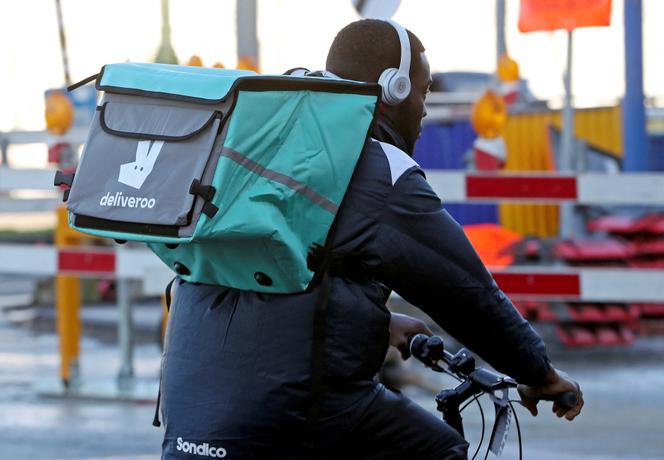


Several European Union nations, led by France, rejected a reform that supporters argue would improve conditions for app workers in the gig economy on Friday, December 22.
The European Parliament and member states on December 13 agreed on a reform that could have been the world's first covering conditions for platform workers. The draft law said people working through apps, such as ride-hailing drivers, could be reclassified as employees and thus gain access to labor rights and social protection.
If a worker meets two out of five criteria set out in the legislation, it will be presumed they are an employee. France objected to the automatic reclassification.
Spain, which holds the rotating EU presidency, opted not to hold a vote during a meeting of EU ambassadors on Friday because there was not enough support for the deal, EU diplomats told AFP.
France, backed by the Czech Republic, Finland, Greece, Hungary, Ireland, Latvia, Lithuania and Sweden, said they could not support the agreed text, an EU diplomat said. Approval requires a qualified majority of 15 out of 27 EU nations, representing at least 65 percent of the bloc's population.
France, the EU's second-biggest economy, hit out at the agreement this week, claiming it was different from the draft text agreed by member states only in June this year.
"When you move towards (rules)... that would allow massive reclassifications, including self-employed workers who value their self-employed status, we cannot support it," French Labor Minister Olivier Dussopt said on Wednesday.
French left-wing lawmakers were quick to blame France for the blockage. "Rejection by 'Paris'," French socialist MEP Aurore Lalucq said on social media. "This government prefers Uber over workers' rights and Europe," she added. Another MEP, left-wing Leïla Chaibi, said French President Emmanuel Macron had "organized the torpedoing of the European platform workers' agreement."
The European Transport Workers' Federation also slammed the lack of agreement. "The unjust stalling of a crucial agreement for platform workers' basic rights, blocked by a vocal few, is a slap in the face to the tireless efforts of taxi drivers and delivery workers, particularly at their busiest time of the year," it said.
The text agreed last week will now have to be renegotiated with the parliament. The EU's jobs and social rights commissioner, Nicolas Schmit, was still hopeful that Belgium, which holds the presidency from January, will succeed in getting approval. "I have full confidence in the Belgian presidency to successfully complete this very important file," he said.
There are around 28 million gig workers dependent on online platforms in Europe, and the number is expected to rise to 43 million in 2025. The European Parliament believes at least 5.5 million people could be wrongly classified as self-employed.
